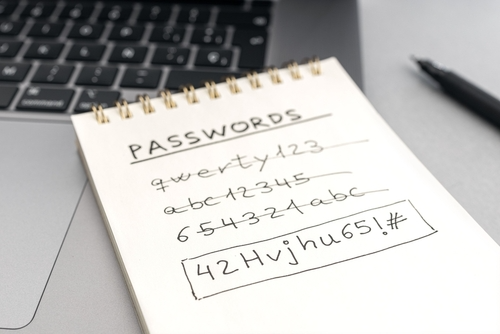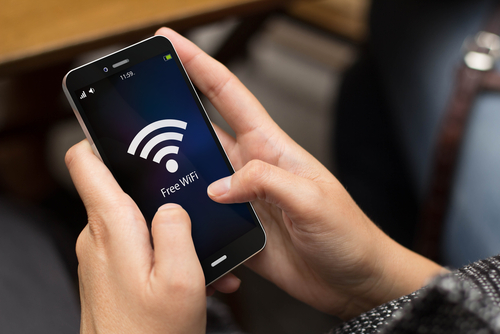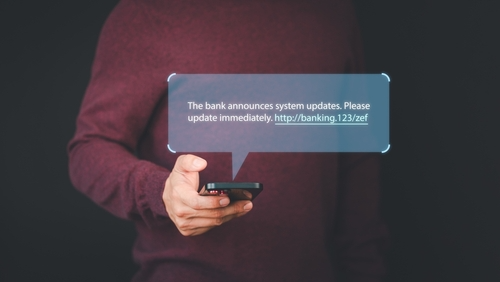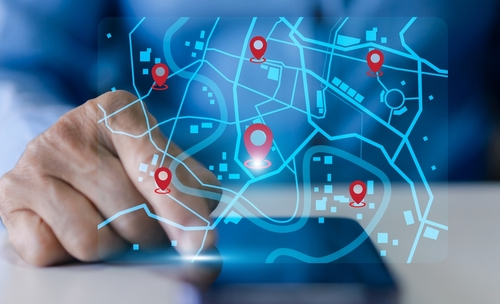Your online information is more than you might think. Companies, hackers, online predators and government agencies can monitor and gather data on you and use it without your permission or knowledge. You also can’t get very far online without allowing websites to access a certain amount of your personal data. We are constantly being asked to accept cookies when browsing new websites as well as provide and store your delivery and bank information when making online purchases.
Especially for parents with young children, keeping up to speed with protecting their online identity is hard to safeguard.
Based on years of experience, our in-house cybersecurity experts have compiled a guide for the best cybersecurity practices to help keep your online privacy safe. The tips are all very practical and easy to implement. Some of the tips require you to purchase software and we have provided recommendations to assist you.
Online Privacy Top Tips
Here are the top 10 tips to help you keep your information private:
1. Use Strong, Unique Passwords for Every Account

We cannot stress enough how much a strong password is your first line of defense. The importance of using a different password for each of your logins, and the password itself to be a combination of letters, numbers, and special characters.
Better yet, use a password manager to generate and store unique passwords for every account. Our password solution, Total Password, is software that can be installed across all of your personal devices. It securely saves all of your passwords inside a vault and helps you create, update and store all of your passwords.
Cybercriminals who have gained access to your password can use your email address to break into many of your personal accounts.
2. Enable Two-Factor Authentication (2FA)
Add an extra layer of security by enabling 2FA wherever possible. This requires a second verification step (like a text message or authentication app) in addition to your password.
3. Be Cautious with Public Wi-Fi

Public Wi-Fi networks are often unsecure, making it easy for hackers to intercept your data. A criminal simply hacks into your device through the open wifi and can snoop using spyware on everything you are doing. If you are online shopping they can steal your credit card information. If you are doing confidential work, they will be able to view all of it.
A VPN (Virtual Private Network) encrypts your connection and protects your privacy when using public networks. A VPN is activated, typically through another country or state and this encrypts your connection so that hackers cannot access your device or snoop.
4. Limit Social Media Sharing
Today, social media is one of the main methods for communication and sharing highlights of our daily lives has become the norm for many people. However, oversharing on social media allows cybercriminals to learn more about you and use that information against you. Today, it is advised to think twice before sharing personal information like your home location, phone number, email address, date of birth, social security number, passport number, or vacation on social media. Cybercriminals can use this information for identity theft, harassment or social engineering attacks.
Social engineering is psychological manipulation used to trick you into installing malware or fall for a phishing scam that has been tailored to your personal interests.
5. Regularly Review Privacy Settings
Marketing companies and hackers love to know all about you. They can use this knowledge to sell you something, sell your information to unknown third parties, and a hacker can use this information to scam you.
All of the apps on your phone, as well as the phone itself will all have privacy policies for how your data is used. If you browse online and visit multiple websites, these will also have cookies that track your browsing experience and pass on information about you.
You can take some control of your digital footprint by using Privacy Settings. (It is still important to be cautious about the information you share and keep privacy in mind, even when using strict privacy settings.)
Privacy Settings are typically located under ‘Settings’ or ‘My Account’ on devices, apps and websites. They will let you control different things, opt out of unnecessary data collection and limit what third parties can access.
- Limit what information a platform stores about you
- Make your accounts private where possible
- Choose the highest and most restrictive security settings available
- Refrain from storing credit card information across your accounts
- Review your social media profiles and delete anything you no longer want to share
- Turn off location tracking or limit when this happens
- Turn off third-party data sharing
- Delete old accounts that you are no longer using
Remember that regardless of the audience you choose for your social media posts, the organisation itself is still collecting everything you post.
Here are the links to find the privacy setting information for popular online services:
There are tools that you can use to help control the amount of personal information you share. We offer an adblocking tool, Total Adblock, which not only blocks adverts online but also blocks the tracking cookies that websites and advertisers use to monitor your browsing behaviour.
Privacy Settings are also not something you do once and forget about. Many platforms update their privacy settings over time, so it’s a good idea to review them regularly.
6. Beware of Phishing Scams

Phishing scams are when online criminals send you a message or advertise a fake scam website which has malicious intent. To either trick you into revealing sensitive information, harvest your credit card information or install malware onto the device you are currently using.
Phishing attempts can come via email, SMS text message, scanning a QR Code or clicking on an online advert, which in most instances all link to a fake website.
Phishing Scams can cause havoc with your privacy. Once your information is out there in the hands of a hacker, it can be used to steal your identity and sold on the dark web. So it’s really important to never click on the link in an email or sms text message if you are uncertain about the sender. Use the official company website to check on the status of your account if need be.
For phishing protection there are a few tools that we offer. Total WebShield is a browser extension that helps to detect fraudulent websites and phishing scams. It will actually alert you when you are on a website that has malicious intent, protecting you from falling for the trap. TotalAV offers Real-Time Protection against malware gaining access to your device. TotalAV for iPhone has an in-built spam sms blocker, which will block spam sms from even getting into your Apple Message inbox.
7. Keep Software and Devices Updated
It’s important to make sure that the software in your phone, apps, computer etc is up to date to avoid old version vulnerabilities that hackers like to exploit.
Read here for more information on the importance of keeping your software up to date.
8. Secure Your Web Browsing
Marketers are always looking for the best way to sell their products. One of the fastest ways to ensure that your product is being served to the most relevant customers is using targeted online advertising. Just by simply browsing the internet, this opens you up to marketers being able to mine your data and target you for a sale. Your browsing history is monitored, where you click and how often you visit a certain website is all recorded.
There are two ways you can go about this. You can continue to use your current browser and add an adblocking extension that will prevent your movements being tracked online. The other solution is to move to a privacy-focused browser like Total Browser which won’t track your activity online or store your search history.
9. Disable Location Tracking

Turning off location tracking on your devices is important for protecting your privacy and security. Location tracking can be invasive, however there are apps that still rely on your GPS data, such as maps and navigation apps. As well as services for emergencies that rely on this data such as ‘Find my Phone’ or ‘What3Words’. Not forgetting helpful services like weather updates which are tailored to the location you are currently in.
But there are many apps and services that request location access completely unnecessarily. So it’s advised to disable location tracking for apps that simply don’t need it, and review your device’s location-sharing settings to ensure you’re not oversharing.
How do I stop software from tracking my location? This is typically a setting within the software itself.
10. Use Antivirus Software
Antivirus software is one of the most effective ways of protecting your online privacy. Having software installed that is going to protect you from unauthorized access, spyware, malware and having your device held ransom.
Every day, the AV-TEST Institute registers over 450,000 new malicious programs and potentially unwanted applications (PUA’s). These include malware, viruses, scareware, adware, spyware and worms.
An antivirus software detects and blocks these attacks, protecting your device and the contents inside it.
Our TotalAV antivirus software has won multiple awards with AV-TEST, including multiple Top Product awards. The results of which you can find here.
Educate Yourself and Stay Updated
Cybersecurity threats and privacy issues evolve constantly. Stay informed about the latest threats and privacy best practices by following trusted cybersecurity blogs and news outlets.
By incorporating these tips into your online habits, you can significantly reduce your risk and take control of your digital online privacy in 2025 and beyond.


